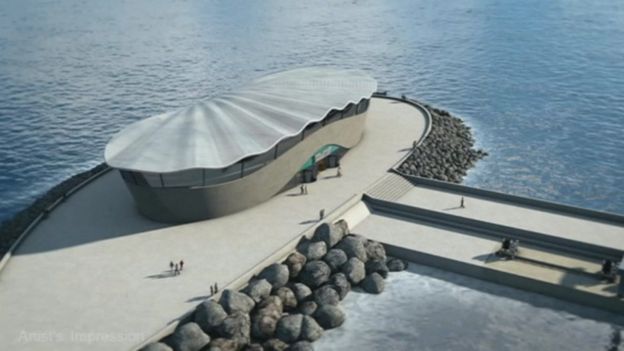British government decision not to build Welsh tidal lagoon criticised
The decision made by the British government yesterday not to sanction the building of a proposed £1.3bn tidal lagoon in Swansea Bay has been widely criticised in Wales. The scheme off Swansea Bay had £200m backing from the Welsh Government. Welsh First Minister Carwyn Jones has condemned the decision not to go ahead with the scheme. Tidal Lagoon Power (TLP) who are behind the scheme said it could have provided power for 120,000 homes for 120 years and that the unit price of power from a pathfinder project at Swansea Bay need cost no more than the unit price of power from Hinkley Point C [nuclear plant], which has already received government backing.
The British government has continually refused to commit to the project even though in January 2018, the Welsh Government offered the project "substantial investment" to help reduce the subsidy required. A British government-commissioned report published in January 2017 also said that the scheme should get the go-ahead. But yesterday's rejection of the scheme by British ministers is seen as a slap in the face for Wales. The issue once again raises the whole issue of energy production in Wales and how an independent Wales would be in a better position to decide on the appropriate sources of energy that would suite the country.
Plaid Cymru - Party of Wales has consistently called for a not-for-profit Welsh energy company. They point out that even though Wales has a thousand miles of coastline, five million acres of land and a number of untapped natural resources, it produces less renewable energy than elsewhere in the UK. As it stands Wales generates more electricity than it consumes and yet has some of the highest electricity costs in Europe. Plaid Cymru has called for a national energy company for Wales that will use the profits from Wales’ abundant renewable resources to cut the cost of energy for consumers.






